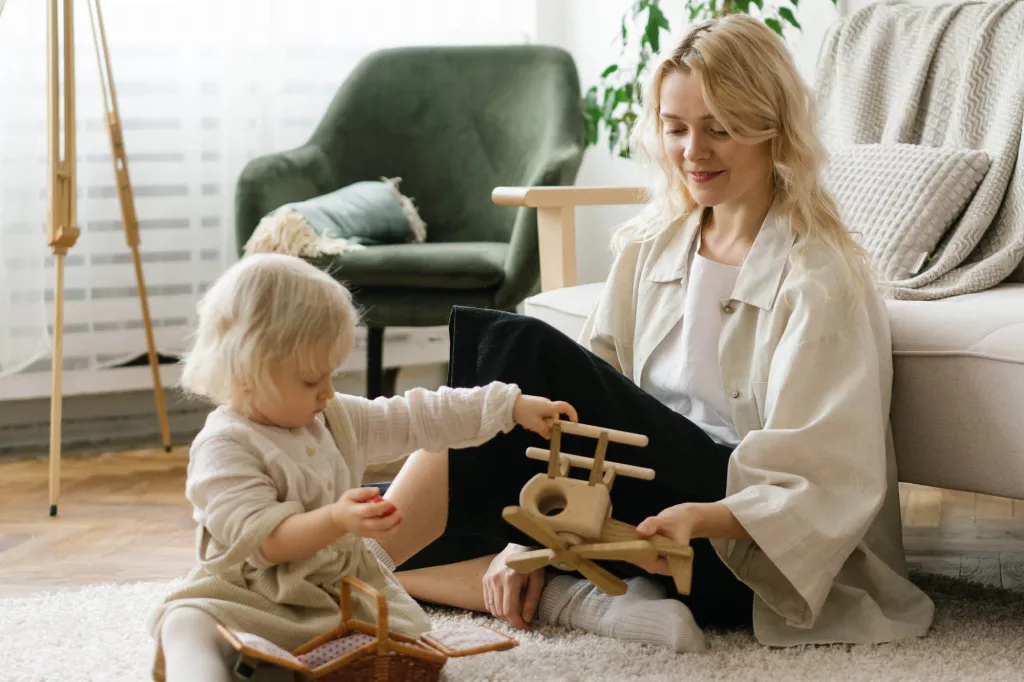Rocking the stay-at-home life with its tantrums and endless chores? We feel you. That’s when stay-at-home mum depression can sneak in, dimming your glow. But remember, you’re not in this alone.
By Charlotte Cruz
Stay-at-home mums often have an incredibly rewarding yet challenging role.
While they are central to the foundation of a family, nurturing children and often managing household chores, they may sometimes experience a unique form of depression known as “stay-at-home mum depression.”
And this depression is linked to the distinct challenges they face daily.
“BEING A STAY-AT-HOME MUM IS A VALUABLE AND OFTEN UNDERAPPRECIATED ROLE. IT’S ESSENTIAL TO RECOGNISE THE CHALLENGES AND ENSURE THAT MUMS HAVE THE SUPPORT AND RESOURCES THEY NEED TO THRIVE, NOT JUST SURVIVE.”
Recognising the Signs
Stay-at-home mum depression can manifest itself in various ways. Some of the symptoms may include:
- Persistent feelings of sadness or hopelessness
- Loss of interest in previously enjoyed activities
- Fatigue and low energy levels
- Difficulty sleeping or oversleeping
- Feelings of guilt, worthlessness, or helplessness
- Difficulty concentrating or making decisions
- Changes in appetite, either eating too much or too little
- Thoughts of death or suicide
Root Causes
Several factors contribute to stay-at-home mum depression:
- Isolation: Mums who are at home often miss the social interactions of a workplace. Being isolated with kids can sometimes amplify feelings of loneliness.
- Pressure to be perfect: With social media flaunting ‘perfect’ mums, there’s a constant pressure to live up to those standards, leading to feelings of inadequacy.
- Financial dependence: Not having an individual income can sometimes cause stress, leading to feelings of dependence or insecurity.
- Lack of acknowledgment: Stay-at-home mums might feel their hard work goes unnoticed or isn’t valued by society, leading to feelings of invisibility.
Coping Mechanisms
- Stay connected: Engage in local mum groups or virtual forums to share experiences and feelings. This can help combat feelings of isolation.
- Seek professional help: If feelings of sadness persist, it might be beneficial to see a therapist who can provide coping strategies and support.
- Set realistic expectations: Remember that nobody is perfect. Aim for progress, not perfection.
- Take time for self-care: Find moments for self, whether it’s a short walk, reading, or any activity that helps to relax and rejuvenate.
- Communicate with partners: Sharing feelings with a supportive partner can be therapeutic. They might offer a different perspective or provide assistance in ways previously not considered.
Being a stay-at-home mum is a valuable and often underappreciated role. It’s essential to recognise the challenges and ensure that mums have the support and resources they need to thrive, not just survive. By understanding stay-at-home mum depression, we can be more compassionate and supportive towards the warriors of our homes.
SUPPORT RESOURCES:
COPE
Gidget Foundation
PANDA
Beyond Blue
Sign up to our newsletter for weekly mama goodness delivered straight to your inbox, like the VIP that you are.








